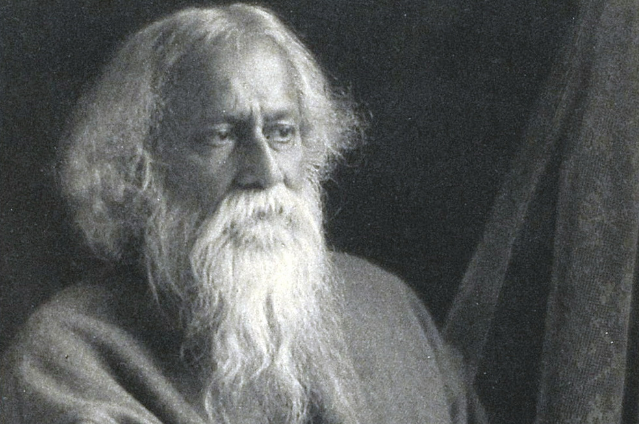The irrepressible desire of a number of poets through the annals of the past; exhibit steadfast disjunction from the physical parts of the corporal life and embarking on, to the mystical. The Concise Oxford Dictionary (1911) identifies a mystic as, “one who believes in the spiritual apprehension of truths beyond the understanding.” But this exposition of an age-old sonorous song; is tenable further to the poets who unearthed divinity in ambiguous forms and shapes through the speeding passage of history. Bards like Henry Vaughan, Richard Jefferies, and William Wordsworth dredged up their mystical qualities intrinsically from nature. Whereas, Percy Bysshe Shelly, Christina Rossetti, and Robert Browning exhort the mystic through salvaging beauty and love as appears to the modern eye. On the contrary, William Blake, however, was not a zealous fanatic of nature, as it proved to be rather, an impediment to his imaginative qualities. One too many times, the Mystics have been rebuked and accused of Escapism—retreating from the duties and responsibilities of the mundane world, but unlike many spiritual seekers, the mystical experiences of Rabindranath Thakur (anglicized Tagore) witnessed a penchant for transcendentalism—climaxing into a longing for the knowledge of the eternal.
Tagore’s God can be explored through Gitanjali (Song Offerings), a panoply of 103 prose poems; a tryst of Tagore with the divine. Tagore’s convictions about God and the ultimate purpose of the human soul have been manifested in a crude, simple, and unalloyed form. However, he does not seek salvation, “Deliverance for me is in renunciation,” says he—a detachment from material preoccupations or worldly desires not renouncing them altogether. At times, man forgets that in this infinite cycle of birth and death, the sublime presence of the supreme; perpetually guides his drifting heart in the tiresome tempests of life and guides him through dark eternity; establishing bonds betwixt the known and the unknown, finite and the infinite. In the first poem of Gitanjali, the Bard of Bengal asserts the immortality of man’s soul, stretching breath in its breathless tides–Thou hast made me endless, such is thy pleasure, this frail vessel thou emptiest again and again, and fillest it ever with fresh life.” In poem 11, Tagore exhorts God’s children, to find him not in temples, churches, and mosques but where the tiller is tilling, where the toilers toil for daily bread; thereby within man. Tagore finds divinity in himself. “Leave this chanting and singing, and telling of beads! Whom dost thou worship in this lonely dark corner of a temple with doors all shut? Open thine eyes, and see thy God is not before thee! He is there where the tiller is tilling the hard ground and where the path-maker is breaking stones. He is with them in sun and in shower, and his garment is covered with dust. Put off thy holy mantle and even like him come down on the dusty soil!” Ultimately, in poem 47, Tagore laments that his nights and days are spent in vain, with a tenuous chord of frail hope; he expresses his desire to secure a rendezvous with God. But he eludes him hiding behind the shadow of a thousand faces amid the tired and restless common man. “Ah, my sleep, precious sleep, which only waits for his touch to vanish. Ah my closed eyes, that would open their lids only to the light of his smile when he stands before me like a dream, emerging from darkness of sleep.” Therefore, Tagore’s God is omnipresent. One can find divinity in every object of nature. His unconquerable presence has enabled him to create bonds of eternity with the distant and the strangers establishing steadfast brotherhood. Tagore avails brilliant confidence to avow, that if we know the God who is ever-present in man, then no one remains unfamiliar and no door shut. His artistic severity has been augmented by the Upanishads and Sanskrit poetics, withal the ideologies of Brahmo Samaj and the spirit of the Indian Renaissance; freedom struggle from British Imperialism. Natheless, he does not believe in Deliverance. For God, himself has his strings toyed and entwined in bonds of love and therefore restrained. Tagore was also heavily inveigled by the spiritual quest of Kabir, a 15th-century mystic poet, and saint; and emulating Kabir’s thoughts he proclaimed himself to be a bride and the Almighty to be a bridegroom—an idea similar to the metaphysical poet John Donne in his notable poem “The Flea.” It is only right that the extremity of Tagore’s mystic often freighted him into the abode of the metaphysical. He addresses God by different names and ultimately realizes the futility of his pursuit, for someone who enshrouds the whole universe, God cannot be defined by any single name— ergo, at the denouement of Gitanjali, justly pays salutation to the Almighty as ‘Thee.’ His blissful, ever-comforting presence never lets his soul astray, his conviction wayside, or emotions unaccepted. The joyful embrace of poetry in Gitanjali is not any hollow cavern of despair but an abode of uninhibited joy. The compendium won him the very coveted Nobel Prize for Literature in 1913 where he addresses the Swedish Academy as a stranger made a brother.
The universality of his verses has drawn poets like William Butler Yeats and Ezra Pound and many other European writers and critics. W.B. Yeats endearingly said, “I read Rabindranath every day. To read one line of his is to forget all the troubles of the world.” It is indeed no mere truism, that Thakur’s poetry renders us an assuagement from worldly anguish, a loyal friend amid the urban void, lasting faith in a faithless realm—blind to his charms, a plea to unfurl the tender and eluding mystery of the God, ever present in man. Mahatma Gandhi calls this, the epoch of Rabindranath; granting him the glorious epithet of ‘The Great Sentinel.’ We may be in consonance with his unfaltering faith; which never alters, never fails, outcasts death, and defies all riotous tempests—testifying to Tagore’s devout love and abiding faith as eternal, unyielding, and timeless.

